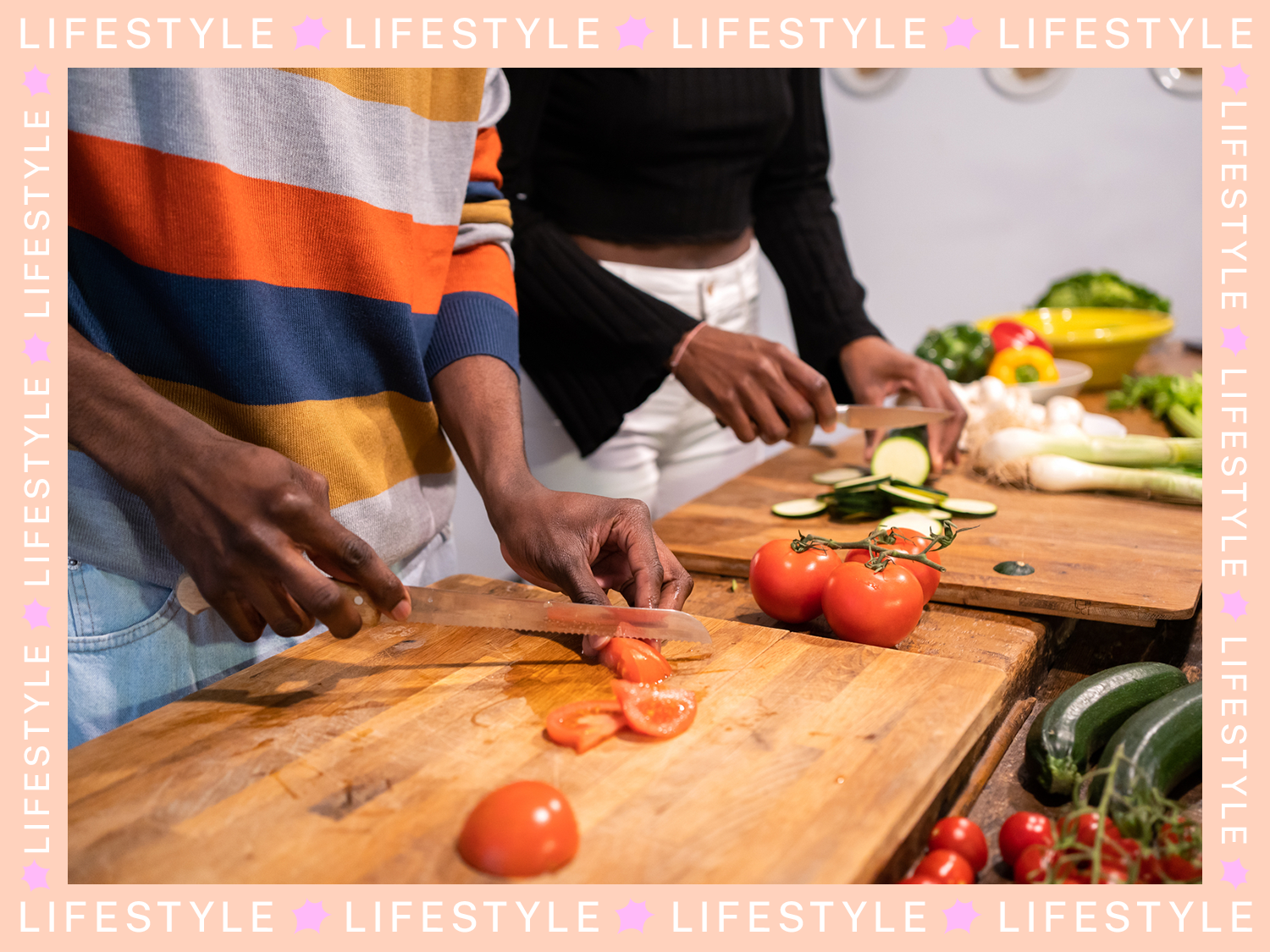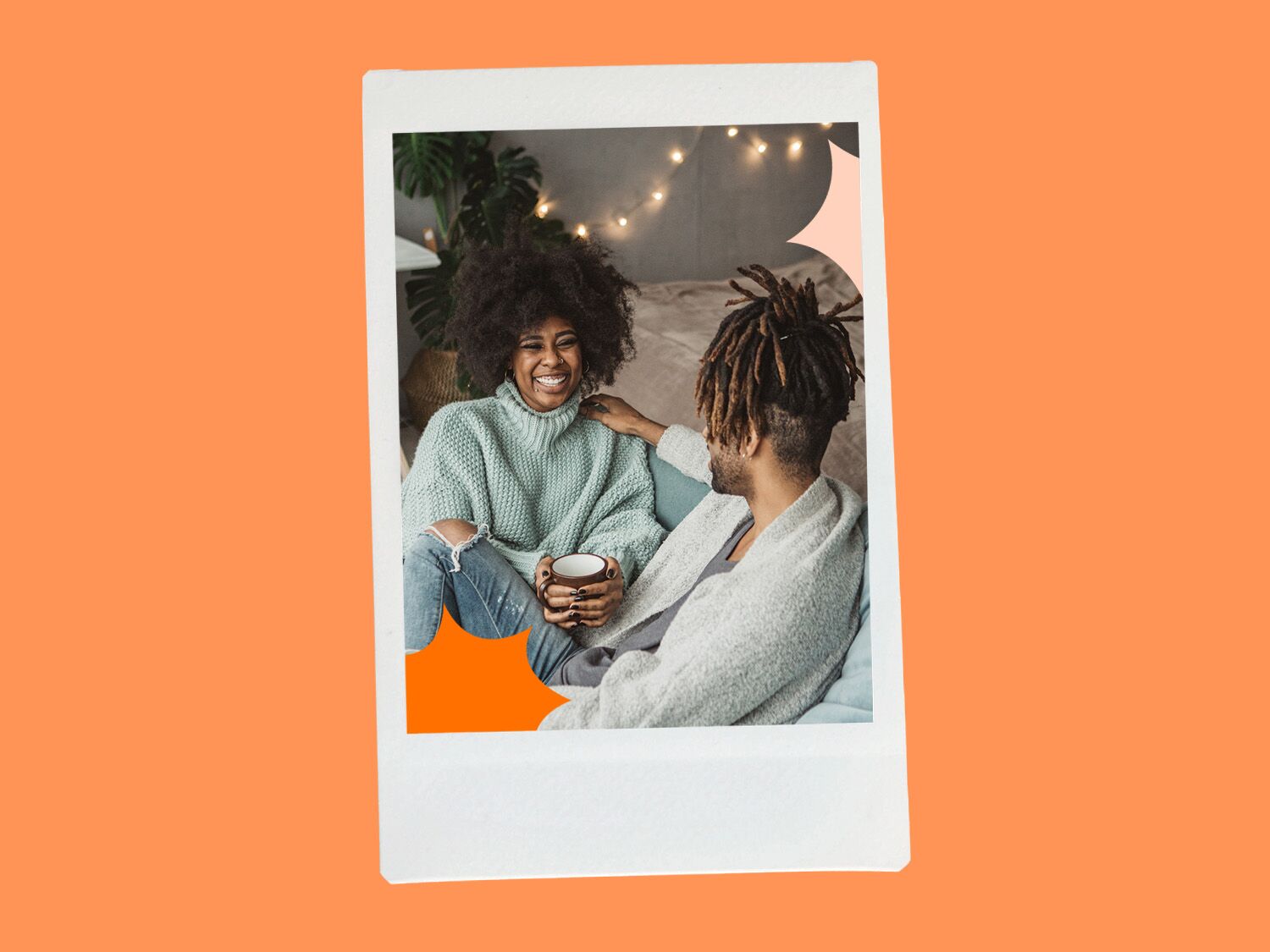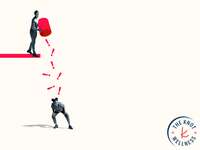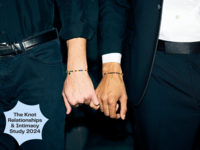How to Cope With Uncertainty in Your Relationship
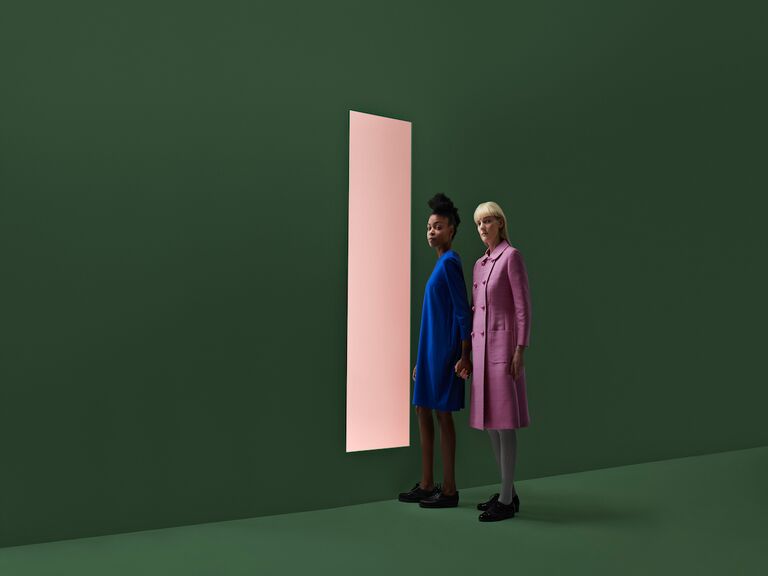
The start-and-stop of the pandemic forced all of us to reevaluate our boundaries, our needs, and perhaps most pressingly, our capacity for change. Whether you've had to postpone your wedding several times or dealt with the failing health of a loved one, this period in history has presented a seemingly unending amount of uncertainty. Finding ways to deal with uncertainty is part and parcel of being in any relationship, from the do-they, don't-they thrill of first romance to the big life milestones of when and whether to get married, purchase a home, or start a family. But how do we navigate and cope with bigger uncertainties in relationships? And what toll has uncertainty taken on us over these past few years?
"Most people find uncertainty to be quite stressful, and for good reason: Throughout human evolution, it was literally dangerous to be uncertain about what we might face in the next minute, hour or even year," Kate Sweeny, Ph.D., a professor of psychology at the University of California, Riverside, tells The Knot. "Uncertainty might be less physically dangerous for most people in modern times, but we still have a strong tendency to find the experience uncomfortable at best, intensely stressful at worst."
Sweeny founded the Life Events Lab to study the psychology of uncertainty, and specifically, the effects that waiting might have on us as individuals. What she's found in her research is that while we're "pretty good" at problem-solving in the moment, we're "not so good at coping with things that might or might not be coming down the line." Knowing this, then, she says it's essential that we develop strategies that help us both deal with what's within our control and manage our expectations for what isn't.
Sweeny, as well as Gottman Institute Licensed Marriage and Family Therapist Anna Aslanian, and Dr. Dori Gatter, a psychotherapist and CEO coach, shed some insight into how to tackle uncertainty with our partners. Read their tips below.
Remember: Not All Uncertainty Is Bad
An important thing to remember is that feeling uncertain in a relationship is completely normal. "One manifestation of uncertainty is worrying, which can be quite productive when it draws our attention to some threat ('I might get in a car accident') and motivates us to take action to prevent that threat ('I should wear my seatbelt and drive safely')," Sweeny says. "But when worry is overwhelming, or long-lasting, or out-of-sync with our ability to prevent bad things from happening, it tends to do more harm than good (depression, sleep disruption, illness, etc.)." So, recognize first and foremost that uncertainty is in and of itself not all negative; a healthy dose of it can help us calibrate our priorities and values.
"Decades of research points to the fact that people find it difficult to make any kind of decision when the consequences are uncertain, or when they don't feel like they have all the information they need to make a good decision," she says, explaining that "when it comes to so many of the big decisions in life, we simply can't avoid those uncertainties." So rather than assume feelings of uncertainty signal something is "wrong" with a relationship, look at it as a reminder of something you need to dig into—together.

Familiarize Yourself With Your Own 'Relationship Risk'
According to Dr. Gatter, humanity was forced to really get to know themselves better, absent the normal distractions of COVID "before times": a daily commute, coworkers, routines and obligations. "What kind of person are you? Are you a person who can tolerate chances and uncertainty? Or are you a person who needs more conservative kinds of decision-making?" Dr. Gatter asks.
It's important to understand ourselves better, she says, because only then can we gauge our true compatibility with our partner. Whether you're looking to move in together, buy a house, or start a family, making big life decisions with a partner in such precarious times means it's imperative you both understand your individual relationships to risk first. "It used to be more like, 'Hey, if we do it and it doesn't work, no big deal,'" she says, noting that the stakes feel higher these days. "Now, you have to say, 'Okay, let's consider all the options and are we good with that?'"
Be Honest With Your Partner About Your Different Needs
Oftentimes, individuals might feel like they have to hide their own discomfort with certain decisions in order to appease their partner. This can dilute conversations, with both partners talking around their needs rather than stating them outright, which can render decision-making downright impossible. "Communicate your needs and wishes but also ask your partner what they wish for," Aslanian tells The Knot. "It's okay if your answers are different. Create a safe space where differences are accepted. This will help each partner feel more comfortable in sharing vulnerably."
Adds Dr. Gatter, "Everybody has needs. We all have needs and that's a good thing. … It's a directional signal and no needs are bad needs. Nobody's too needy. But we can't expect our partner to meet all of our needs; that's unrealistic." Part of knowing ourselves better means recognizing our own capacity when it comes to meeting our partner's needs, and asking our partner to be honest about theirs, too.
Tell Your Partner Where You Stand
When it comes to relationships, uncertainty can often lead to a breakdown in communication. Aslanian tells The Knot that some of the ways uncertainty can negatively impact couples is by creating "distance between partners." Things to watch for: "Anxiety and worry that's unexpressed or expressed to others but not one's partner," Aslanian says. In other words, communication is key: let your partner know where you're at, whether it's a desire to start a family or to make a big, risky career move. "It's always a couple's issue, no matter what it is," Dr. Gatter tells The Knot. "Whether it's an aging parent or a health issue, it's always a couple's issue because you're a couple. You're in a relationship. So if it affects one person, it affects the other person too."
"Don't assume you know how your partner feels. Ask them," Aslanian adds. "Ask them how you can support them better. This will help them feel seen and heard. This can help you feel as a team." Uncertainty researcher Sweeny tells us that as humans, we don't tend to have a good gauge of "the rollercoaster of worry that uncertainty entails, unless [we're] the person experiencing it." Take, for instance, a study she and her team conducted about the social support that romantic partners provide would-be lawyers who are awaiting their bar exam results.
"We find that partners fall down on the job in the middle of the waiting period, when the exam is far in the rearview mirror and the results are still far in the future," she says. "To them, it feels like nothing is happening, so why worry—but to the person whose career is on the one, even a random Tuesday in the middle of the wait can be excruciating." In other words, it never hurts to ask your partner what they might need in stressful times.
Conflict Isn't an Immediate Sign to Call It Quits
Making decisions with your partner can be stressful. Planning a wedding that involves countless entities that are out of your control is, too. Waiting to hear the results for a fertility test or facing down the new unknowns of a cross-country move are big stressors no matter how you look at it. So it's important to remember context when arguments arise from these sorts of tectonic life shifts. Dr. Gatter notes that oftentimes, couples get into what she calls "power struggles," wherein both partners are trying to get their needs met and are bent on trying to convince the other person to do things their way.
"Every single relationship at some point has to go through power struggle," she says. "A lot of people break up during power struggle; they just think they're not compatible and it won't work." But, she says, the trick here is to make sure you're "seeing, hearing, understanding, and validating your partner" instead of getting defensive. In other words, it's not just about making sure you're seen and heard, but making sure you're making space for your partner too.
Stop Scrolling; Start Sharing
A true detriment to couple's relationships during the pandemic was the overuse of social media. "It's important not to compare our relationship with others, especially what we see on social media because we don't really know what goes on behind closed doors," Aslanian says. "Real relationships are not photoshopped and filtered like they appear on social media. They are messy but beautiful in their own way." Adds Dr. Gatter: "Unfortunately, a lot of time on social media, we're just showing our best sides, and all the good times, so it can create unrealistic expectations."
"What I've seen in my office, especially with younger people, is that they are expecting more of the fantasy and when problems come up, they take that to mean that it's not the right person, rather than 'this is normal and it's something we have to work through,'" she says. "I wish more people would come into couple's counseling when they've got pebbles to work on rather than boulders. It's much easier to work on pebbles. You know?" Lean into the messiness of your uncertainty and be willing to dig into the difficult conversations; your future relationship will thank present you later.

